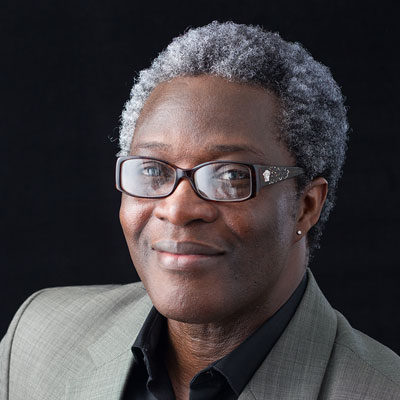Dr. Frindéthié is a 2011-12 recipient of a Fulbright Teaching/Research Award to the University of Mauritius, a 2004-05 recipient of a Fulbright Teaching/Research Award to the University of Bamako, Mali, and a Fulbright Visiting Scholar to the Teachers Training College of Nouakchott, Mauritania. He is the author of the 2008 book “The Black Renaissance in Francophone African and Caribbean Literatures.”
Q. Why is it important for students to study French?
A. I want to assume that the most important thing for students in this ever-tightening job market is to complete their degrees, which are the tokens of their savoir-faire, and exchange them for respectable jobs on the global marketplace as one would exchange a currency for goods.
By adding French to their skills (through double major, language certificate or a four-semester language course), students peg their expertise globally; they stand out, because they give themselves not just a local attractiveness, but global desirability in the thousands of multinationals that are seeking to hire people with competency in French language and Francophone cultures.
What people should realize is that there are presently more than 70 international organizations and 33 countries that use French as an official language as well as thousands of multinationals that are looking to hire workers with French skills.
Q. How does your research on Francophone Africa and the globalization of Africa fit in to your teaching?
A. The courses that I usually teach explore connections between Africa and the wider, global world.
The initial stimulus to write usually comes from my students’ inquiries. Then I research the multifarious aspects of the questions, analyze them, break them down into their most understandable forms, and synthesize them in one place for my students and the general public to access. My activity as a scholar is a virtuous cycle of teaching, research and teaching.
Q. Why should students interested in studying French choose Appalachian?
A. The French and Francophone program at Appalachian is designed and taught by highly qualified, nationally and internationally recognized and experienced faculty that are very attentive to individual students’ needs.
Our French and Francophone Studies program combines theoretical knowledge with sustained experiential international stays to give students updated, practical skills.
The French and Francophone Studies program has greatly contributed to the overall success of Appalachian, a university that has, by the dedication of its faculty and staff, constantly won a respectable place among the top teaching institutions in the country.
Q. What do you enjoy most about teaching at Appalachian?
A. Arriving here after almost a decade in the Washington, D.C. area, I found Appalachian State University to have a peaceful natural and human environment that for me turned out to be very propitious to scholarly production.
One thing that characterizes most of the students I have worked with at ASU is that they have a sense of purpose. They seem to know what is at stake, and they take ownership of their education. It is rewarding. When teachers don’t have to chase students to make them understand the importance of their studies, they have more time to devote to the essentials and provide students with the best return on their education investment.
I believe that this has to do with the manageable size of the campus. The low student-faculty ratio makes it easy for faculty to be attentive to individual students’ needs and for students to not be overwhelmed. There is an interpersonal working environment that is healthy for faculty and students.
Appalachian’s French and Francophone Studies program combines theoretical knowledge with sustained experiential international stays to give students updated, practical skills, says Dr. K. Martial Frindéthié.

